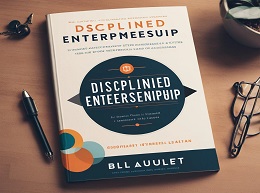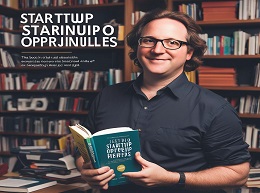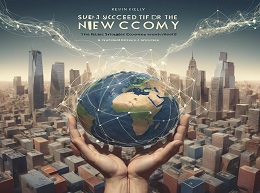This Is Marketing: You Can’t Be Seen Until You Learn to See

Redefining Marketing: A Review of "This Is Marketing: You Can’t Be Seen Until You Learn to See"
In an age where consumers are inundated with advertisements and marketing messages, standing out requires more than just clever slogans and eye-catching visuals. Seth Godin, a renowned marketing expert, delves into this challenge in his book "This Is Marketing: You Can’t Be Seen Until You Learn to See." This comprehensive guide shifts the focus from traditional marketing tactics to building meaningful connections and delivering genuine value. This review explores the key concepts and actionable insights from Godin's book, enriched with real-world examples to engage both aspiring marketers and seasoned professionals.
Understanding the New Marketing Paradigm
Godin’s central thesis is that marketing is no longer about the stuff you make but about the stories you tell and the connections you foster. Traditional marketing focused on mass appeal and interruption, whereas modern marketing, as Godin advocates, is about understanding and addressing the needs and desires of a specific audience.
The Shift from Mass Marketing to Niche Marketing
One of the foundational ideas in "This Is Marketing" is the shift from mass marketing to niche marketing. Godin argues that trying to appeal to everyone is a futile endeavor. Instead, successful marketers focus on a specific, well-defined audience the smallest viable market. By deeply understanding this group, marketers can create products and messages that resonate powerfully.
For instance, Godin highlights the success of brands like Harley-Davidson, which doesn’t try to appeal to every motorcyclist but rather focuses on a specific type of rider who values the brand's rebellious and free-spirited identity. This targeted approach not only fosters strong brand loyalty but also turns customers into passionate advocates.
Empathy and Understanding
At the heart of Godin's marketing philosophy is empathy truly seeing the world through the eyes of your audience. This involves understanding their fears, desires, and aspirations. Godin stresses that marketers need to listen more than they talk and observe more than they pitch.
An example Godin uses is the story of RXBAR, a protein bar company that clearly lists its simple ingredients on the front of its packaging. By understanding that health-conscious consumers are wary of hidden ingredients and value transparency, RXBAR built trust and differentiated itself in a crowded market.
Building Trust and Permission
Trust is the cornerstone of effective marketing. Godin introduces the concept of "permission marketing," where marketers seek the consent of potential customers before delivering messages. This contrasts sharply with interruption marketing, where messages are thrust upon uninterested audiences.
Godin cites the example of Glossier, a beauty brand that has built a community of loyal customers by engaging them in the product development process and prioritizing their feedback. By asking for permission and delivering value through content and interaction, Glossier has cultivated a highly engaged and trusting customer base.
Crafting a Compelling Narrative
Storytelling is a powerful tool in marketing, and Godin emphasizes its importance in creating emotional connections with customers. A compelling narrative not only captures attention but also fosters a deeper bond with the audience.
Godin discusses the example of TOMS Shoes, which incorporates a simple yet powerful story in its marketing: for every pair of shoes sold, a pair is given to a child in need. This narrative not only differentiates TOMS from other shoe brands but also gives customers a sense of purpose and involvement in a larger cause.
Authenticity and Consistency
Authenticity is crucial in storytelling. Godin warns against crafting stories that are too good to be true or inconsistent with the brand’s actions. Authentic stories build credibility and resonate more deeply with the audience.
Patagonia, the outdoor clothing company, exemplifies this principle. Known for its commitment to environmental sustainability, Patagonia’s marketing stories revolve around its efforts to protect the planet. This authenticity not only attracts environmentally conscious consumers but also reinforces the brand's values consistently across all touchpoints.
Marketing as a Force for Good
Godin believes that marketing should be about creating positive change and making a difference. Marketers have the power to influence behavior and shape culture, and with that power comes responsibility.
He illustrates this with the example of Dove’s Real Beauty campaign, which challenged conventional beauty standards and promoted body positivity. By aligning its marketing with a meaningful social cause, Dove not only increased its market share but also contributed to a broader cultural shift.
The Importance of Contribution
Contributing to the community and the world at large is another theme Godin explores. Successful brands are those that not only seek profit but also aim to make a positive impact on their customers and society.
Warby Parker, the eyewear company, embodies this principle. For every pair of glasses sold, Warby Parker donates a pair to someone in need. This model of social entrepreneurship has resonated with consumers who want their purchases to contribute to a greater good, thus strengthening brand loyalty and advocacy.
The Marketing Funnel Reimagined
Godin reimagines the traditional marketing funnel, focusing more on building relationships than merely pushing prospects through stages. He introduces the concept of the "customer journey" and emphasizes nurturing long-term relationships rather than just closing sales.
He suggests practical tools such as detailed customer personas, journey maps, and feedback loops to better understand and engage the audience at every touchpoint. This approach ensures that marketing efforts are aligned with the needs and preferences of the target audience, fostering loyalty and advocacy.
Actionable Steps for Marketers
Godin provides actionable steps for marketers to implement his principles:
1. Identify the Smallest Viable Market : Focus on a specific group of people who truly need and care about what you offer.
2. Develop Deep Empathy : Understand your audience’s emotions, fears, and desires.
3. Tell Authentic Stories : Craft narratives that resonate with your audience’s values and experiences.
4. Build Trust : Seek permission and engage in genuine interactions.
5. Create Value : Ensure that every marketing effort adds value to your audience.
6. Make a Difference : Align your marketing with a larger purpose or cause.
Balancing Authenticity and Commercial Goals
One challenge marketers may face is balancing authenticity with commercial objectives. While genuine storytelling and empathy are crucial, businesses also need to achieve financial goals. Godin advises maintaining a clear focus on the customer’s needs while designing strategies that also meet business objectives.
Adapting to Rapid Change
The marketing landscape is constantly evolving, and marketers must stay adaptable. Godin highlights the importance of continuous learning and agility in responding to market changes and emerging trends. Marketers should be prepared to pivot their strategies as needed while staying true to their core values and mission.
"This Is Marketing: You Can’t Be Seen Until You Learn to See" by Seth Godin is a masterclass in modern marketing, offering profound insights and practical guidance for creating meaningful connections and driving positive change. By shifting the focus from mass appeal to niche marketing, emphasizing empathy and trust, and harnessing the power of storytelling, Godin provides a comprehensive framework for effective and impactful marketing.
Whether you are a budding entrepreneur or a seasoned marketer, this book offers valuable lessons that can transform your approach to marketing. Embrace the principles outlined in "This Is Marketing," and you will be well-equipped to navigate the complexities of today’s marketing landscape and achieve lasting success.













